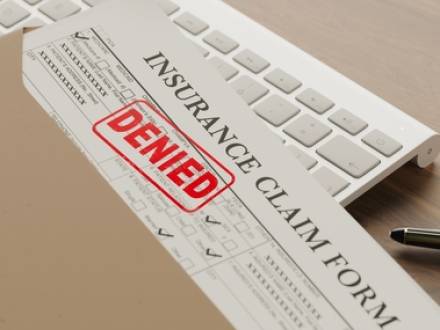Defending Against Bad-Faith Claims: Strategies for IL Insurers
 Bad-faith insurance claims can expose companies to significant financial liability, as well as reputational damage, particularly in a plaintiff-friendly state like Illinois. When policyholders allege that an insurer wrongfully denied a claim, delayed payment without justification, or failed to conduct a proper investigation, the stakes are high.
Bad-faith insurance claims can expose companies to significant financial liability, as well as reputational damage, particularly in a plaintiff-friendly state like Illinois. When policyholders allege that an insurer wrongfully denied a claim, delayed payment without justification, or failed to conduct a proper investigation, the stakes are high.
Not every dispute, however, amounts to a bad-faith insurance claim. Illinois sets a fairly high standard for proving such claims, and insurance companies have robust legal defenses available. Consulting with a Rock Island County, IL insurance defense attorney can help determine the most effective defense possible, given the specific circumstances.
What is a Bad Faith Insurance Claim in Illinois?
Bad faith, in the context of an insurance claim, usually refers to the dishonest or unfair handling of an insurance claim by the insurer. Bad faith goes beyond negligence or a mistake, involving a failure to act fairly and honestly, and, under 215 ILCS 5/155, can include:
- Unreasonable delays in handling a claim
- Misrepresentations by the insurer regarding policy provisions
- An unjustified denial of a valid claim
- Unreasonable or "vexatious" conduct
- Failure to properly investigate a claim
- Offering a settlement that is substantially less than the claim is worth
What is the Distinction Between Breach of Contract and Bad Faith?
Essentially, the distinction between breach of contract and bad faith lies in intent. Bad faith is a deliberate act of misconduct related to the contract, while breach of contract is a failure to perform, which may or may not have been intentional. Bad faith involves dishonest or unethical conduct, while breach of faith occurs when one party fails to fulfill their contractual obligations.
What Are Some Common Defenses Against Allegations of Bad Faith?
If a company is facing a bad-faith claim, there are several defenses that can be used against those allegations. These include:
- There is a reasonable basis for the claim denial or delay.
- The person’s coverage is in dispute.
- There has been good faith communication and transparency.
- The insured failed to cooperate with the investigation or provided misleading information.
- The claim falls outside the scope of the insurance policy.
- The individual failed to meet one or more conditions of coverage.
- The company conducted a prompt, fair, and thorough investigation of the claim.
- The bad faith claim was not filed within the statute of limitations.
Strategic Litigation Approaches for Insurers
Insurers should make an early motion to dismiss the bad faith claim when possible. Discovery can uncover weaknesses in the plaintiff’s case, such as exaggerated claims on the part of the plaintiff or insufficient evidence to support the claim. There may also be contradictory evidence in the form of inconsistencies in the plaintiff’s statements or actions. The insurance company should review its claims handling process to ensure that thorough and timely investigations are conducted, along with a reasonable basis for the actions taken.
Since a bad-faith claim requires proof that the insurer acted intentionally rather than negligently, the insurance company will want to diligently investigate whether the denial was a mistake or oversight, rather than a deliberate attempt to inflict harm. Expert testimony may be challenged, and, in some situations, a counterclaim can be filed against the plaintiff to highlight his or her bad conduct and create leverage.
Contact a DuPage County, IL Insurance Defense Lawyer
Bad-faith claims can be defended by being proactive and using the right strategy. If your company is facing a bad-faith insurance claim in Illinois, experienced legal guidance is extremely important. Having a Chicago, IL insurance defense attorney from SpyratosDavis LLC can significantly impact the outcome of your case. Our firm is highly focused on developing a smart and workable strategy. Call 630-810-8881 to schedule an initial meeting with one of our experienced attorneys.










